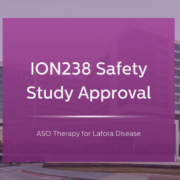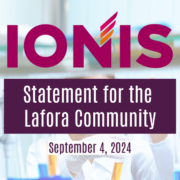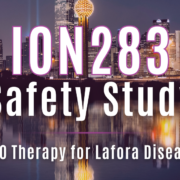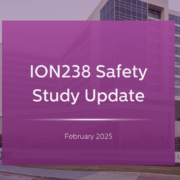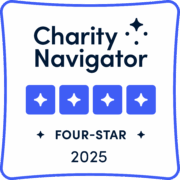Chelsea’s Hope Advisory Board Meets to Discuss Research Goals
The Chelsea’s Hope Advisory Board met in April to provide guidance and support for the organization’s clinical and research goals in 2025:
- Get the ION283 safety study fully funded
- Assist with the analysis and publication of collected data in order to drive biomarker development for Lafora disease and determine global prevalence rates
- Establish Clinical Centers of Excellence and/or Guidelines for Clinicians
The primary topics of discussion were preparing for ION283 clinical trials, validating biomarkers for Lafora disease progression, and developing guidelines for seizure management for Lafora patients.
ION283 Safety Study
The ION283 Safety Study now has six patients enrolled. Dr. Berge Minassian, who directs the study at the University of Texas Southwestern Medical Center, assured the board that patients will be enrolled as soon as funds are available. Also, Noventia is continuing its preparations to launch a clinical trial for ION283 in Europe. The timeline and details of this trial are still under discussion. Members of the Advisory Board will make themselves available to Noventia when requested to provide expertise and insight to ensure the best care for Lafora patients.
Biomarker Research Goals
Before any potential Lafora therapy can begin clinical trials to establish efficacy, biomarkers for Lafora disease progression must be identified and validated. Chelsea’s Hope and the broader Lafora community have assisted with global efforts to collect patient samples for biomarker analysis. The data from the two-year Natural History Study sponsored by Ionis is now ready for analysis. Members of the Advisory Board have committed to participate in working groups over the summer to review the data and recommend promising biomarkers.
Centers of Excellence
While our organization continues to support the development of therapies, there are steps that we can take now to improve the quality of patient care worldwide. This year, Chelsea’s Hope will sponsor a series of discussion panels to establish Centers of Excellence for Lafora Disease and guidelines for patient care. The Advisory Board recommended that the organization prioritize the development of guidelines for seizure management in Lafora disease. Dr. Roberto Michelucci will direct this effort with support from Chelsea’s Hope as well as a cohort of clinicians who treat Lafora patients.
Questions?
For more information about the Chelsea’s Hope Advisory Board,the projects, or the research goals outlined in this news post, please contact our Scientific and Executive Director, Dr. Kit Donohue (katherine@chelseashope.org).




